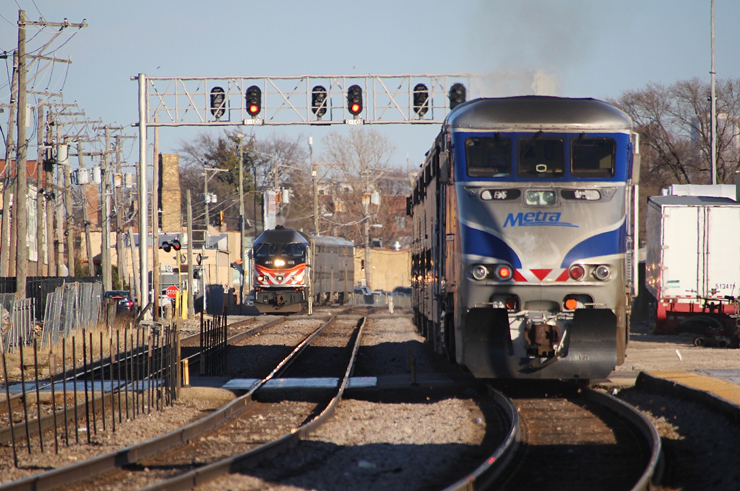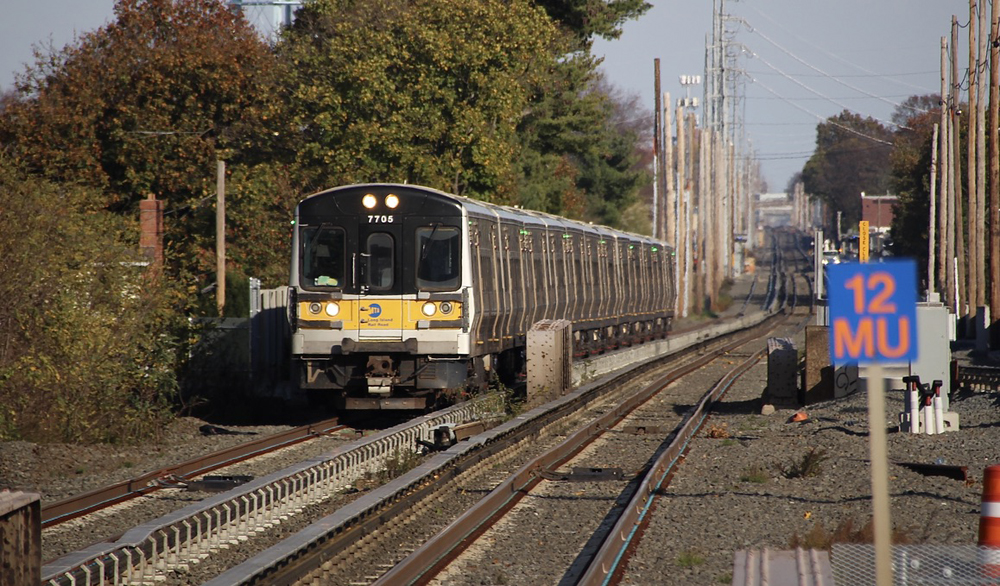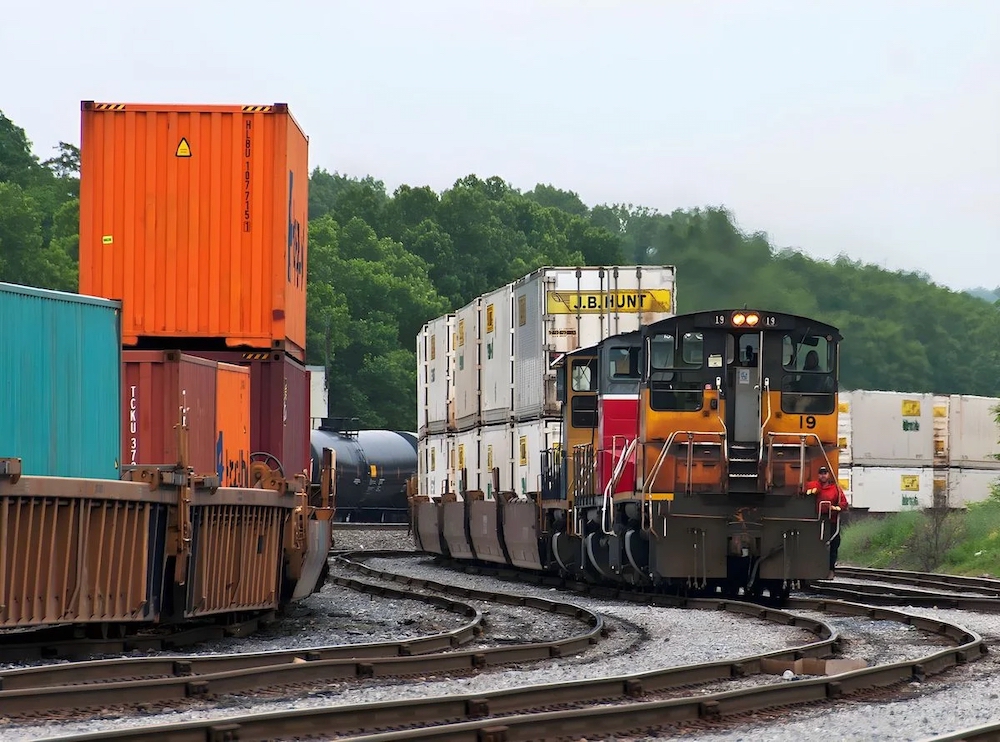Thursday morning rail news:
— It may take one to three years for Metra ridership to return to 2019 levels after the coronavirus pandemic — if it gets there at all. The Chicago Tribune reports that is the assessment of the commuter railroad’s chief financial officer Thomas Farmer, as delivered in a online board meeting Wednesday. Current estimates are that Metra’s April ridership will be only 3% of the figure for April 2019, and that the agency will lose more than $500 million in ticket and sales tax revenues by the end of 2021.
— Railcar manufacturer The Greenbrier Companies has suspended production at its factory in Portland, Ore., because of the economic impacts of COVID-19. Greenbrier said in a press release that it shut down intermodal double-stack production at its Greenbrier Gunderson plant — which had run almost continuously for 25 years — a week ago, reflecting a surplus of intermodal cars as well as declining intermodal traffic. It will shut down its refrigerated and insulated boxcar line in July, when current orders in progress are complete, although that line could restart when the coronavirus crisis subsides. About 200 Greenbrier Gunderson employees will be affected. , the company announced in a press release.
— Portland, Ore., transit agency TriMet and Denver’s Regional Transportation District are among the latest agencies to sign on for today’s “Sound The Horn” salute to essential workers during the coronavirus pandemic; its buses, light rail, and commuter trains will be sounding their horns at noon Pacific time, 1 p.m. Mountain time, as part of the salute. Amtrak and commuter rail agencies across the country will be part of the salute [see “’Sound The Horn’ salute grows to include commuter rail agencies nationwide,” News Wire Digest, April 15, 2020].















When I worked in the commercial bus business the saying was always— “I have a pay’n load ” today. Never has changed, whether planes, trains or busses.
An excellent book that described this change in society long before anyone envisioned it was Bowling Alone by Robert Putnam. Still considered a classic social science book.
Have to agree with you Galen, I think when we come out of this retail and the office environment are going to be much different. There will be a lot less need for expensive office space, these large corporations are functioning with people sitting at home using remote access. People who have never or resisted on line shopping are now almost forced to adapt.
The internet needs beefing up but I’m assuming the 5G will help.
I believe commuting by car will never return to previous levels either as people will discover the convenience of working at home. Employers will also benefit in that they would require less office space to lease for those employees. This is what the “millennials” have already adapted to & this will only lead to further social isolation among the general population. The virtual work place is here to stay.
The logistics of Sound The Horn salute in unison to essential workers may be tempered by trains in quiet zones at that moment.
USA will never recover from the economic sledgehammer blow to the economy of the extended lockdown. The first to feel the effect will be public transit, which already has been in fiscal distress.
It amazes me that on this rail forum we have people who think that social isolation can be accommodated on public transportation. No it can’t. Whether public transportation is American Airlines or you child’s school bus or anything in between, the balance sheet only works with full loads.
Here’s a bit of levity off-topic regarding “work-at-home”….in this writer’s case it meant replacing the kitchen floor, or, working on the RoW.
Alex, I can agree with you on the social need and Charles I definitely agree with you on the output, however will corporate greed take over? Willing to accept less productivity which can be managed with good leadership, but not paying for expensive real estate might entice some corporations to try. We will see, bottom line always wins.
ALEX CHRISTMAS — Work at home is total BS. There’s no way productivity is anywhere near going to the office, even for the 5% to 10% of people in the work force who don’t touch their clients, build things or handle materials.
My office from which I’m retired has been shifted work at home for the past six or seven weeks. Sure things have changed a bit since I left – better software, more files digitized, the switch away from land line telephones, etc. Even so, the work is the work is the work. Looking back on my career I don’t see that I had anywhere near a day a week I could have taken home with me. I would know. Sometimes I did take work home with me. It didn’t add up to much.
Work at home means paying people for staying home. And for my former office, it basically means work is shut down.
How can the financial director make these predictions? There is absolutely no precedent to this and as I have always said — predictions are very difficult to make, especially when it comes to the future. When is someone going to ask these bean counters where they come up with these forecasts?
I’m not quite so sold on the working-from-home craze lasting long-term. Humans are social, so most people will still want to directly interact at the office. It takes a certain personality to work from home long term and quite frankly that is probably a minority.
Metra has been slowly losing ridership for years, probably a 1-2 punch of lower gas prices and a reduction in city-centrism. Job opportunities are increasing in the suburbs and is why Metra has been adding counter-rush trains in the last few years. The live in the suburbs, work downtown paradigm for white-collar workers is weakening in cities like Chicago, New York and Boston.